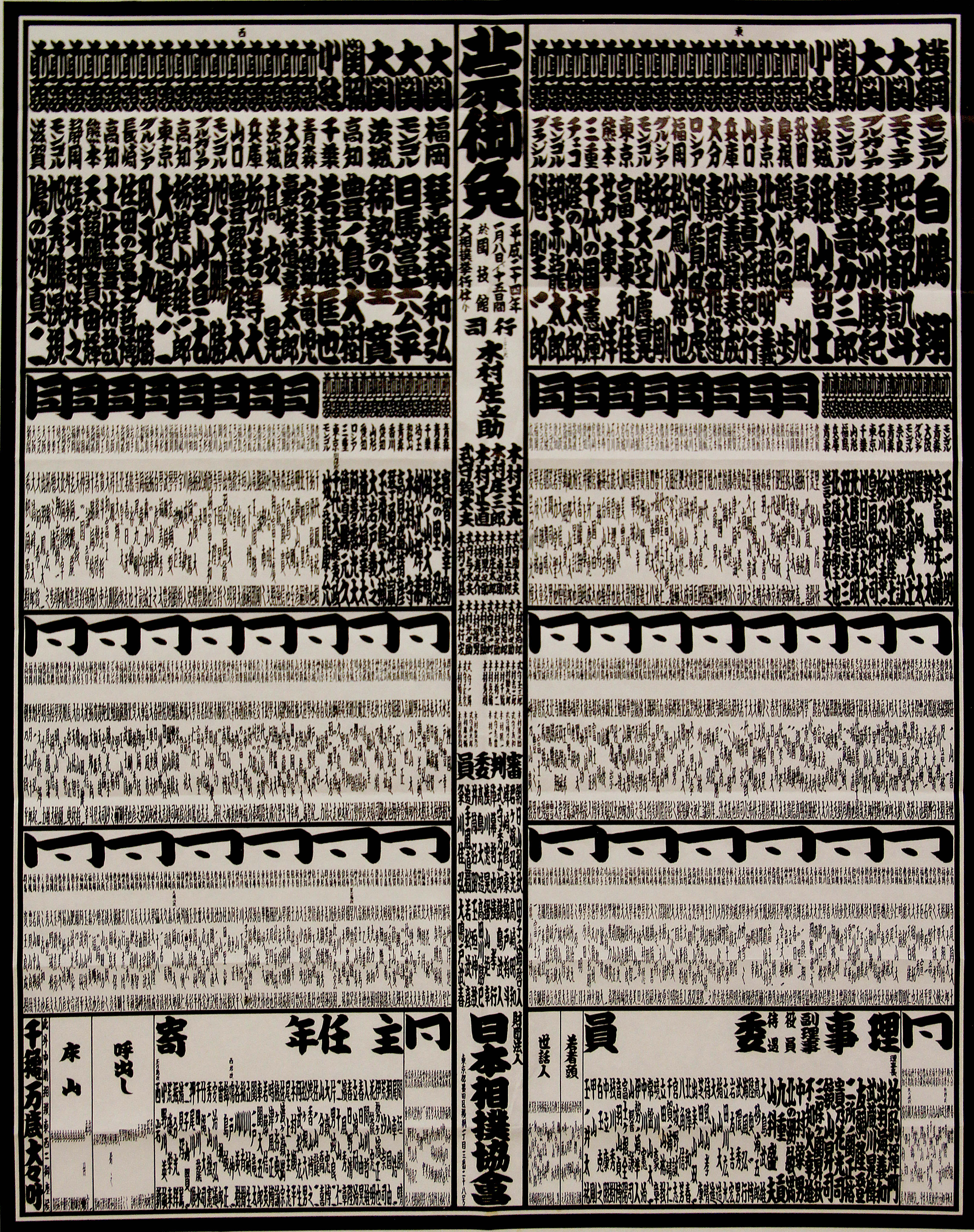|
Zōgahana Heisuke
–but sometimes called "Zōgabana" or "Sōgahana" because of the Japanese phonological tendency called ''rendaku''–was a Japanese sumo wrestler from Tateyama, Awa Province (now Tateyama, Chiba Prefecture). His highest rank was '' ōzeki''. He is the fifth wrestler from the prefecture to have been promoted to this rank in total. He was promoted roughly at the same time as Sakaigawa, who became an ''ōzeki'' the year before. He was also the last to hold the title until Konishiki's promotion in 1890, 25 years later. Career Zōgahana began wrestling in Tanigawa stable. He first wrestled under the ''shikona'', or ring name, but later changed it for . In 1866, he was recruited to serve the Marugame Domain. Just before his promotion to the ''makuuchi'' division, he changed his ''shikona'' to , another name essentially meaning "elephant's () trunk ()", an unusual choice. In 1871, he was promoted to ''ōzeki'', professional sumo's second highest rank, because at the time Kimenzan ... [...More Info...] [...Related Items...] OR: [Wikipedia] [Google] [Baidu] |
Shikona
A is a sumo wrestler's ring name. The tradition of ring names in sumo dates back to the Muromachi period and established itself during the Edo period, where they were used as a means to hide the identities of the . Given by the master to his disciple, this pseudonym doesn't follow any fixed rules, but is chosen in accordance with numerous influences, drawing its kanji, characters from the wrestler's inspiration or family, from the history of his stable or even from the master's own name. History Sources attesting to the use of pseudonyms by wrestlers and other martial artists date back to the mid-1500s, during the Muromachi period. During the period of peace established under the Tokugawa shogunate, Japan experienced an unprecedented period of vagrancy for many samurai who had lost their social standing with their previous masters, who had been deposed or killed so that the shogunate could assert itself. These masterless samurai, called , could not engage in any activity under ... [...More Info...] [...Related Items...] OR: [Wikipedia] [Google] [Baidu] |
Banzuke
A , officially called is a document listing the rankings of professional sumo wrestlers published before each official tournament ('' honbasho''). The term can also refer to the rankings themselves. The document is normally released about two weeks before the tournament begins. On the ''banzuke'', wrestlers are divided into East, which is printed on the right, and West, which is printed on the left. Each wrestler's full ''shikona'' (ring name), hometown and rank is also listed. The top of the page starts with the highest ranked ''makuuchi'' wrestlers printed in the largest characters, down to the wrestlers in the lowest divisions which are written in much smaller characters. The names of '' gyōji'' (sumo referees), '' yobidashi'' (ushers/handymen), '' shimpan'' (judges), '' oyakata'' (elders of the Japan Sumo Association), and occasionally ''tokoyama'' (hairdressers) are also listed. While not as old as sumo itself, the form and production of this document can be traced as ... [...More Info...] [...Related Items...] OR: [Wikipedia] [Google] [Baidu] |
People From Tateyama, Chiba
The term "the people" refers to the public or Common people, common mass of people of a polity. As such it is a concept of human rights law, international law as well as constitutional law, particularly used for claims of popular sovereignty. In contrast, a people is any plurality of Person, persons considered as a whole. Used in politics and law, the term "a people" refers to the collective or community of an ethnic group or nation. Concepts Legal Chapter One, Article One of the Charter of the United Nations states that "peoples" have the right to self-determination. Though the mere status as peoples and the right to self-determination, as for example in the case of Declaration on the Rights of Indigenous Peoples, Indigenous peoples (''peoples'', as in all groups of indigenous people, not merely all indigenous persons as in ''indigenous people''), does not automatically provide for independence, independent sovereignty and therefore secession. Indeed, judge Ivor Jennings i ... [...More Info...] [...Related Items...] OR: [Wikipedia] [Google] [Baidu] |
